|
By: Brady Hill Commuting into Boulder, Colorado, every day, I see scars on the Earth caused by an increasingly unpredictable climate. At a single vantage point driving down into Boulder Valley, I can point out wildfire burn zones from the Fourmile Canyon Fire in 2010, Lefthand Canyon Fire in 2011, Flagstaff Fire in 2012, Calwood Fire in 2020, Marshall Fire in 2021, and NCAR Fire in 2022 (1,2). The most memorable of these blazes was the recent Marshall Fire, which occurred on December 30th, 2021. Instead of a holiday winter-wonderland that Coloradans regularly experience, Coloradans were greeted with the most residentially-destructive wildfire in state history, which ripped through entire suburbs within a single windy day and destroyed 991 homes in its wake (3). Fortunately, the fire’s reign was brief, as snow the very next day helped to extinguish the flames. While the start of this fire still remains uncertain, the conditions that led to its rapid spread and mass destruction can be attributed to high and even hurricane-force winds blowing over a region that had seen vastly below average precipitation over the summer and fall, after previously experiencing a wetter than average spring (4). The bountiful spring growth shriveled over a dry half-year; snow specifically remained elusive during this dry-spell, as the nearby city of Denver recorded its latest first snowfall of the season on record (4). Regardless of what caused the spark of the fire, the winds and exceptionally dry conditions took care of the rest. One of many neighborhoods destroyed by the Marshall Fire on Dec. 30th, 2021, in Louisville, Colorado, USA (5). High winds are not uncommon in the Boulder area, and fires are nothing new to Coloradans. However, the concerning trends that scientists are measuring and that locals physically are experiencing point to a new-normal of fire-danger and precipitation irregularity that is being driven by human-induced climate change and an ever-warming planet. Eight of the 10 most destructive wildfires in recorded Colorado history have happened since 2010 (3). A fire season that typically lasted a few months in the late summer and early fall now stretches year-round. A recent study just found that the Western United States is experiencing the most extreme drought in more than 1,200 years, with Lake Mead and Lake Powell reaching their lowest-ever recorded levels; the study also linked the cause to human-induced climate change (6). Even while the recent chain of atmospheric rivers in California (in late December 2022/early January 2023) has provided relief to the extreme drought conditions in that specific state, most of California's reservoirs are still below their long-term average levels for this time of year and much of the state is still classified as experiencing "severe" drought (10). Another concerning environmental trend related to drought and wildfire is related to snowpack; in the spring that followed the Marshall Fire, Colorado saw troubling rates of snowpack melt-off — a faster melt means that the water supply is stretched thin more quickly (through absorption & evaporation) (8). Trends such as this leads to concern over continued drought, water supply issues, agricultural concerns, and increased risk of wildfires in the following year (8). Water levels at Lake Powell are at their lowest level since the lake was created in 1963 (7). So what is an individual to do with these relentlessly stressful climate trends that we read about, and now see with our own eyes in the regions in which we live? Climate change is no longer a hypothetical scientific argument that we heard Al Gore talk about in a documentary that one time. Through actual events and tragedies, a future with climate change is being painted into more detail with every passing year. How does one deal with the relentless anxiety that comes with seeing it affect our daily lives, whether it be locally, through social media, or dominating our news feeds? What does one do with the daily reminders of the global hardships on the horizon? How does one reconcile their hopes and dreams for their future, such as raising a family, when the future is so uncertain? First of all, we have to find ways to act individually, despite the scope. Voting is an obvious first step. Vote to put people in power that make climate action a central aspect of their platform, both nationally and locally. Maybe you cut back on foods products whose production leads to significant carbon emissions and encourage others to do so as well. Maybe you improve your waste, trash, and recycling habits, as the methane from waste and landfills is an even more potent greenhouse gas than carbon dioxide within the first 20 years in the atmosphere. Maybe you ensure that your next car purchase is electric. Naysayers may say that electric cars still produce emissions through the battery manufacturing process, or because of the fact that the energy to charge them comes from an electric grid that relies on coal. That’s where hope and expectation come into play. We have to hold on to hope, and in many cases, expectation. Yes, electric car batteries are not “emission-free”, but in situations like this we have to hope and expect that everyone and everything else in society moves in the right direction to address this issue. For example, if we buy electric, we need to hope and expect that the grid will achieve its goals of becoming carbon free, through economic pressures, regulation, or otherwise. We have to expect that manufacturing processes that generate these batteries are also affected by these trends and continue to become more sustainable. The individual action is driven by their expectation that the rest of society will also make the necessary changes to ensure a more sustainable future. On a larger scale, we must hope and expect that global leaders at conferences like the annual United Nations Framework Convention on Climate Change (UNFCCC) Conference of Parties (COP) can actually make a difference in preventing the warming of our planet. On the individual level, we must vote these people into power. Images from the UNFCCC Conference of Parties (COP) 26 in Glasgow, UK (9). These hopes and expectations are key to addressing this challenge of our species — everyone must focus on what they can individually do, and expect everyone else to act and move in the same direction. This is the only way to address this challenge of our species; otherwise, discouragement and anxiety about the state of our planet will only lead to individual inaction. We must not relinquish hope and expectation. We must continue to act, and we must not forget to expect the same out of ourselves that we do out of the rest of society.
References: 1. https://assets.bouldercounty.org/wp-content/uploads/2017/02/11292016-updated-wildfire-history.pdf 2. https://www.bouldercounty.org/disasters/wildfires/ 3. https://www.denverpost.com/2021/12/30/colorado-most-destructive-wildfires/ 4. https://www.climate.gov/news-features/event-tracker/wet-then-dry-extremes-contributed-devastating-marshall-fire-colorado 5. https://www.denverpost.com/2021/12/31/marshall-fire-boulder-county-friday/ 6. https://www.smithsonianmag.com/smart-news/the-western-us-is-experiencing-the-worst-megadrought-in-more-than-1200-years-180979590/ 7. https://www.indiatimes.com/news/world/lake-powell-water-levels-us-lowest-since-1963-climate-change-drought-565683.html 8. https://www.denverpost.com/2022/05/10/colorado-snow-pack-melt-drought-fire/ 9. https://ukcop26.org/glasgow-leaders-declaration-on-forests-and-land-use/ 10. https://droughtmonitor.unl.edu/
0 Comments
by: Jordon Horton 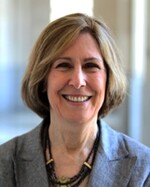 Ruth Greenspan Bell Ruth Greenspan Bell The impacts of climate change are being felt with many lacking the necessary infrastructure to protect against drought and floods. The United Nation acknowledges this need for a call to action. Nearly 2.3 billion people are facing water stress with over 160 million children exposed to severe droughts. Data showing that more will experience drought and water resource issues has led to a big shift to climate change adaptation. Heavy investment in water and sanitation is a significant factor affecting health, the environment, and economic growth. In combating climate change, many developing countries are faced with difficult decisions surrounding management of their resources and interconnectivity with the global economy. Ruth Greenspan Bell is a Public Policy Scholar at the Woodrow Wilson International Center for Scholars who has been looking at this climate dilemma. Immediate change could be achieved in regions with high fossil fuel resources but requires the price of intensive extraction. Following global recommendations of protecting forests and other environmental systems, developing countries are then left to wait for the financial support of developed countries. Rapid shift in the United States’ commitment to upholding climate agreements across administrations produces a lot of a risk for developing countries to wait for wavering support. If developed countries could use the extraction of resources from developing countries for their economic development, why can’t these countries use their own resources to support themselves? Wilson Center NOW hosted Ruth Greenspan Bell during which she further discusses the crossroads of developing nations to combat climate change versus increased development of fossil fuels. COP 27 is will host key discussions on the governance for integrating resource management with climate change. It is crucial to work internationally in solving the crisis facing the world that needs a true leadership on global issues. The yearly climate change summits under the United Nations Framework Convention on Climate Change are great opportunities to raise climate-related issues every year and discuss the accelerating global warming in order to shape strategies to deal and respond adequately to the needs of the planet.
The special report launched in South Korea by the Intergovernmental Panel on Climate Change (IPCC) in October this year while citing six thousand scientific references echoed the need to limit global warming to 1.5°C that could prevent some of the worst effects of climate change. And, this report is of utmost importance to most of the countries. The objective of COP24 being held in Poland’s traditional mining city of Katowice is to reach consensus of all the parties on a set of directives in the light of the Paris Accord to combat climate change. After deadly wildfire in California, climate change should have gotten more attention worldwide, but the negotiators from Saudi Arabia and the United States have allied with their Russian and Kuwaiti counterparts in startling the world representatives at the summit by demurring to a statement ‘welcoming’ the 1.5°C IPCC report. The four fossil-fuel giants argued that it was sufficient for all the parties to merely ‘note’ the findings of this report with Saudi Arabia even threatening to block the discussion if any advancements made any further in order to adopt the change of word. It should also be noted that Saudi Aramco is the world’s largest profitable oil firm. This raises one concern that if the report isn’t just ‘welcomed’ with a stronger language, how will the worldwide emissions be lowered with weaker actions to such an extent so that global warming is halted to 1.5°C by 2020. As the first week of the conference has ended, attempts at the 24th Conference of Parties have failed to recognize and adopt the 1.5°C IPCC report till now. Climate scientist, Masson-Delmotte says, “A 1.5°C and a 2°C worlds are very different in terms of mean climate, extremes, sea level rise, and climate-related risks, with the emergence of climate change hotspots challenging basic water, food, economic security and the risk of irreversible loss of wildlife.” Now, the question is how much worst we are willing to let it get, and that will the real policies and law changes ever occur. Climate change is definitely in the interests of no one and the short-term profits are more likely to cause such long-term damages that will probably leave no chances for the situation of the globe to get back to normal. Either industrial, political and ideological interests have to be compromised or the near-future of the globe. A stronger response to this global threat of warming will commence from stronger statements that will direct the world leadership towards carrying out many stronger actions simultaneously. Politicians/political leaders, senators, ministers, bureaucrats, civil servants, diplomats, and all the policy makers who deny science at the cost of the most vulnerable today will be remembered in the history for their callous actions due to their shortsightedness and complete disregard for the human lives. |
Archives
January 2023
Categories |
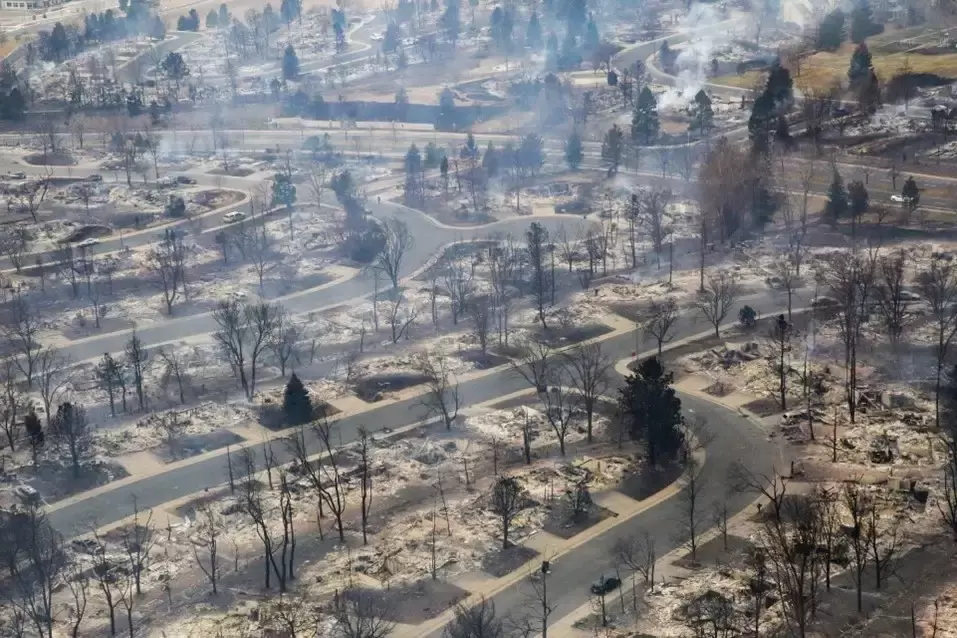
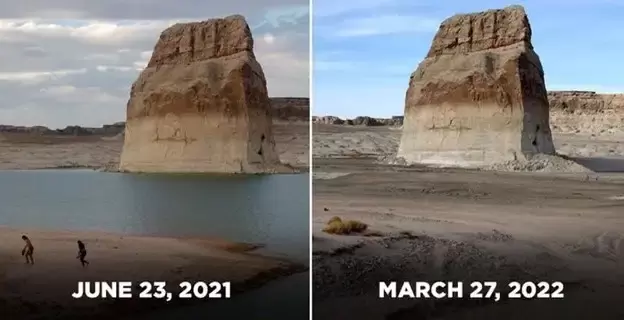
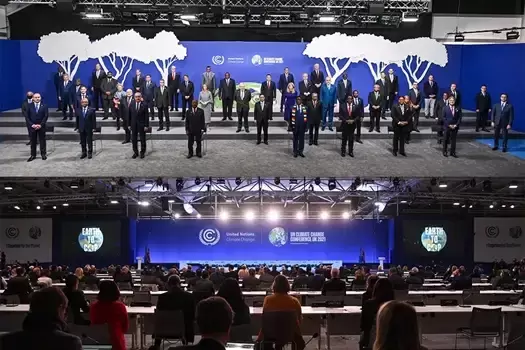
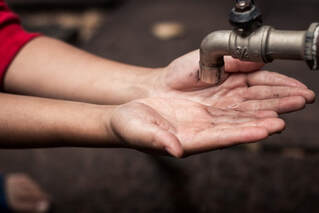
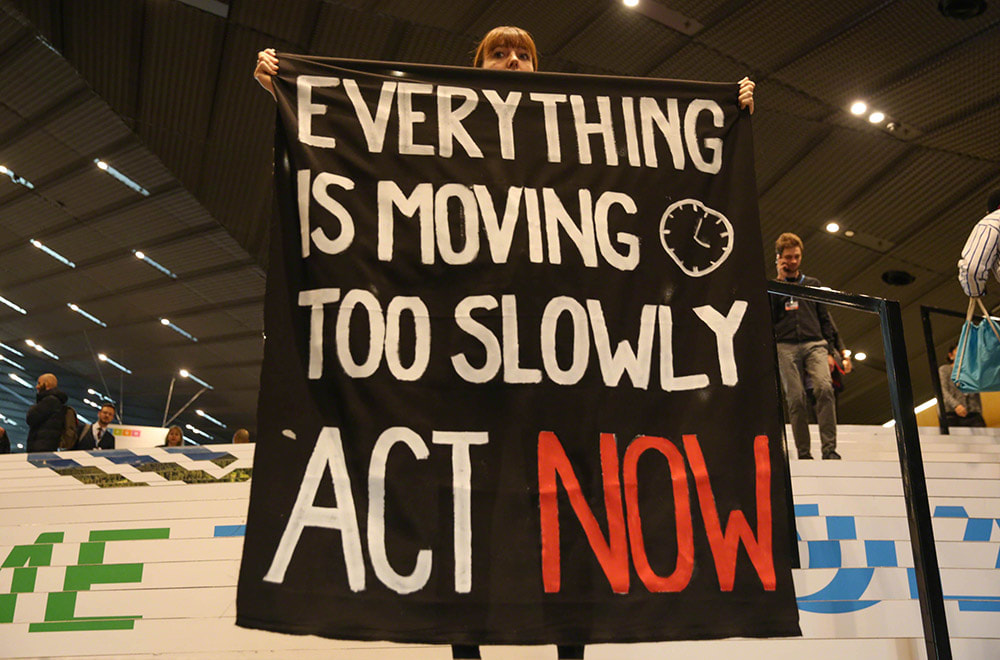
 RSS Feed
RSS Feed
